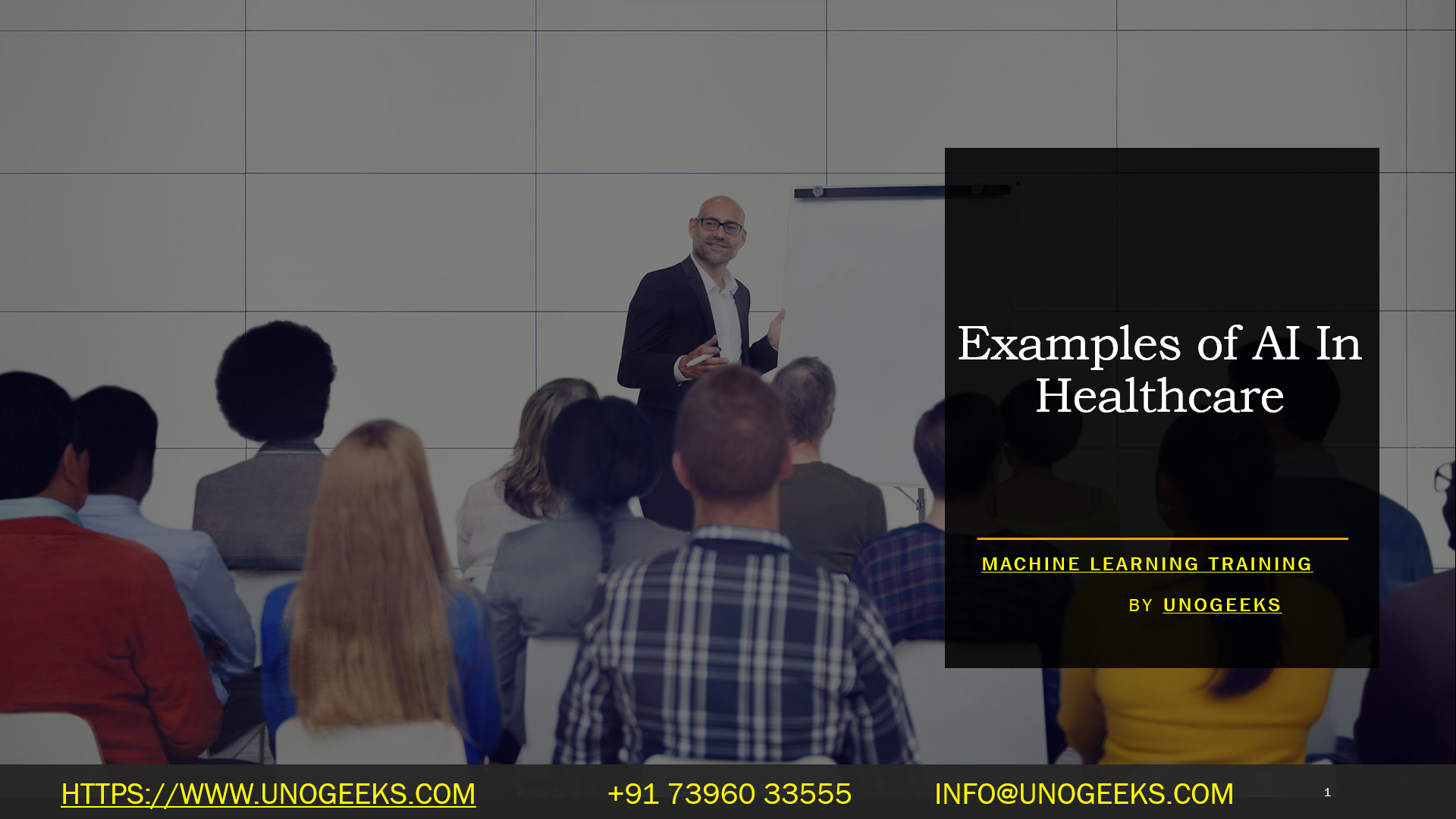Examples of AI In Healthcare
Examples of AI In Healthcare
AI in healthcare has become increasingly prevalent and is utilized in various ways. Here are some examples:
- Disease Identification and Diagnosis: Machine learning models can be trained to recognize patterns and anomalies in various types of medical data like X-rays, MRI images, CT scans, and even genomic sequences, making it possible to identify and diagnose diseases with incredible accuracy.
- Treatment Personalization: AI can help in tailoring treatment plans to individual patients, taking into consideration their specific medical history, genetics, and other factors. This leads to more personalized and effective treatments.
- Drug Discovery: AI can analyze complex biochemical interactions, speeding up the discovery of new drugs and the repurposing of existing ones. This can save time and resources in the pharmaceutical industry.
- Managing Medical Records: Natural Language Processing (NLP) techniques are used to interpret and organize unstructured medical data, such as doctors’ notes, into structured forms. This improves efficiency in managing and accessing patient records.
- Remote Monitoring: AI-powered devices and applications can constantly monitor vital statistics and chronic conditions, allowing healthcare providers to keep track of patient health remotely. This is particularly valuable for managing patients with chronic illnesses.
- Predictive Analytics: AI can analyze various factors to predict outbreaks of epidemics, patient admissions, and other important trends. This can help in better planning and resource allocation.
- Robotic Surgery: Surgical robots, guided by AI, can assist surgeons in performing complex procedures with greater precision and control.
- Chatbots for Mental Health: AI-driven chatbots are being used to provide initial mental health support and counseling. They are designed to interact with patients in a more human-like manner and can assist in handling mental health issues when immediate human support might not be available.
- Enhancing Accessibility: AI can assist in translating medical information into various languages, making healthcare more accessible to people across the globe. Speech-to-text technologies can also aid in communicating with individuals with speech or hearing impairments.
- Radiology and Pathology: Deep learning algorithms are being used to interpret images in radiology and pathology with an efficiency and accuracy that rivals or even surpasses human experts.
AI in healthcare holds great promise in improving both the quality and accessibility of care while potentially reducing costs. However, it also presents challenges in terms of data privacy, security, and the need for clear ethical guidelines. It is a rapidly growing field that is likely to continue evolving with ongoing technological advancements.
Machine Learning Training Demo Day 1
Conclusion:
Unogeeks is the No.1 Training Institute for Machine Learning. Anyone Disagree? Please drop in a comment
Please check our Machine Learning Training Details here Machine Learning Training
You can check out our other latest blogs on Machine Learning in this Machine Learning Blogs

———————————-
For Training inquiries:
Call/Whatsapp: +91 73960 33555
Mail us at: info@unogeeks.com
Our Website ➜ https://unogeeks.com
Follow us:
Instagram: https://www.instagram.com/unogeeks
Facebook: https://www.facebook.com/UnogeeksSoftwareTrainingInstitute
Twitter: https://twitter.com/unogeeks
